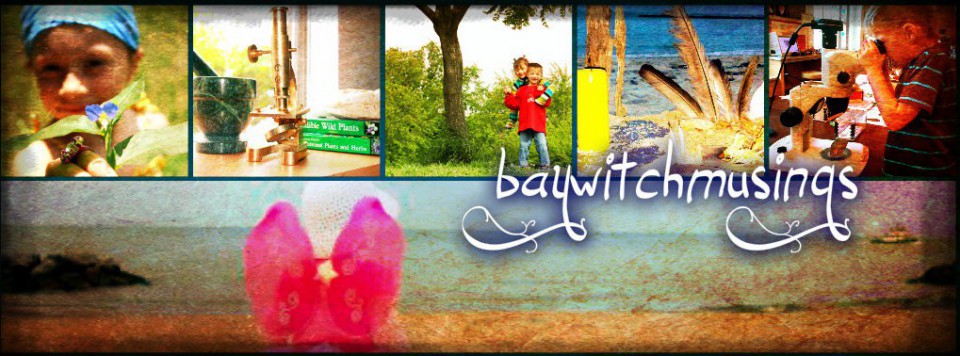Santa’s had a long and bumpy road on his way to becoming a modern icon, but now that he’s here he doesn’t look likely to leave anytime soon. In a world that so often lacks any magic, Santa provides a doorway into a realm of imagination and wonderment. A world without Santa is a world I don’t want to live in. We share so little myth these days, and what myth we do share rarely transcends religious boundaries, but Santa is different. With his origins in Greek myth, Catholic tradition, Norse paganism, and the wilds of the human imagination, he’s capable of not just magically jumping down chimneys, but of jumping into the hearts of whoever will have him.
read the rest (from “The History and Origins of Santa Claus” by Jason Mankey @ Raise the Horns)
I commented on another blog post today, on my position on “The Santa Debate”. As in, whether or not “doing Santa” as part of one’s family traditions is a good idea or not. Interested in the sorts of comments on a mostly Christian blog, I felt compelled to ask about “doing Santa” on the blog’s Facebook pagan, and asked: Do you do Santa? Is he “Pagan too” (I love that song)? Or do you consider Santa to be “lying”? Or do you maybe do something else (like we do the Yule Faeries)?
 I got some really interesting answers. I understand the concern of lying, by perpetuating the idea that jolly fat man rides around in a plush scarlet velvety suit pulled by flying reindeer and managing to deliver gifts to all of the world’s children in a single night (but I tend to think that its not a big deal). I mean, the sheer physics of that are very unlikely. But it seems that a number of people also had problems with the “naughty or nice” thing as some sort of bribery/punishment thing. Also, I saw that even in some families that chose not to “do Santa”, that their kids picked it up from school anyhow and (even in families where they were told that Santa wasn’t real) children often chose to believe intentionally (a variation of this has occurred in our home too).
I got some really interesting answers. I understand the concern of lying, by perpetuating the idea that jolly fat man rides around in a plush scarlet velvety suit pulled by flying reindeer and managing to deliver gifts to all of the world’s children in a single night (but I tend to think that its not a big deal). I mean, the sheer physics of that are very unlikely. But it seems that a number of people also had problems with the “naughty or nice” thing as some sort of bribery/punishment thing. Also, I saw that even in some families that chose not to “do Santa”, that their kids picked it up from school anyhow and (even in families where they were told that Santa wasn’t real) children often chose to believe intentionally (a variation of this has occurred in our home too).
My answer though, in comments on the blog post, was that, in our family, we believe in the sacredness of stories (I’ve talked about this before around here). Mythos is incredibly important to the human experience, whether it be the mythology of hundreds of thousands of religious traditions or the mythology of folk tales. Myth is the collective search of humanity for truth, meaning and significance in the experience of life, so that it resonates beyond the merely physical (and short) time that we are alive into something more.
We’ve been teaching our children for as long as they’ve been alive that it is the spirit of the story that is important, not how literal it is or is not–whether it be Tolkien, the Nativity, or the Oak and the Holly King. Santa doesn’t need to be literal to be REAL. Santa isn’t a jolly fat man in a red suit, he’s the human conception of the spirit of generosity, built upon generations of myth–from stories and images historical characters as varied as Nikolaos of Myrna from to the Norse and Germanic god, Odin. Honestly, he’s probably the best part about the holiday, because he’s accessible to everyone, regardless of religion (and ethnicity–don’t even get me started over the Faux “News” debacle over the race of Santa).
I believe in Santa. Actually, I believe in hundreds–no, thousands of Santas, all around the world. People that embody the spirit of a jolly fat man in a velvety red suit, to bring job to children. People that take the extra time at Christmas, or even all year round. People like this, and this, and this, and this. Bottom line: Santa is one helluva awesome myth to believe in. Even though he doesn’t deliver our presents–too busy getting ready for Christmas. He has his little winged friends, the Yule Faeries do it!

I love Santa! Go Santa!
I watched a documentary last night on Netflix called Becoming Santa. While the historical part wasn’t in-depth, the one-on-one experience of a man becoming a Santa for Christmas is very interesting. Thought I’d pass it along to you.
That sounds interesting! Thanks.